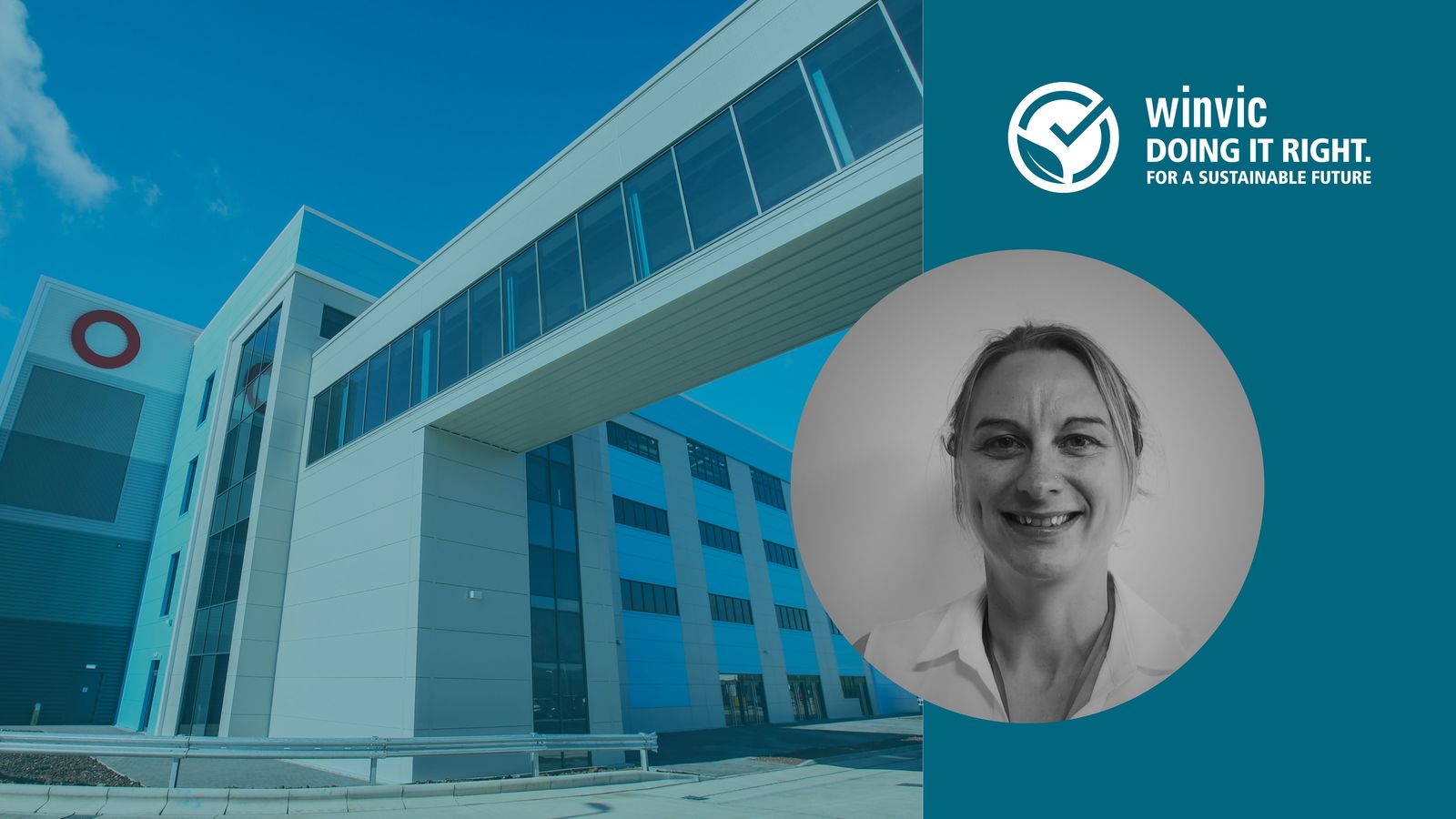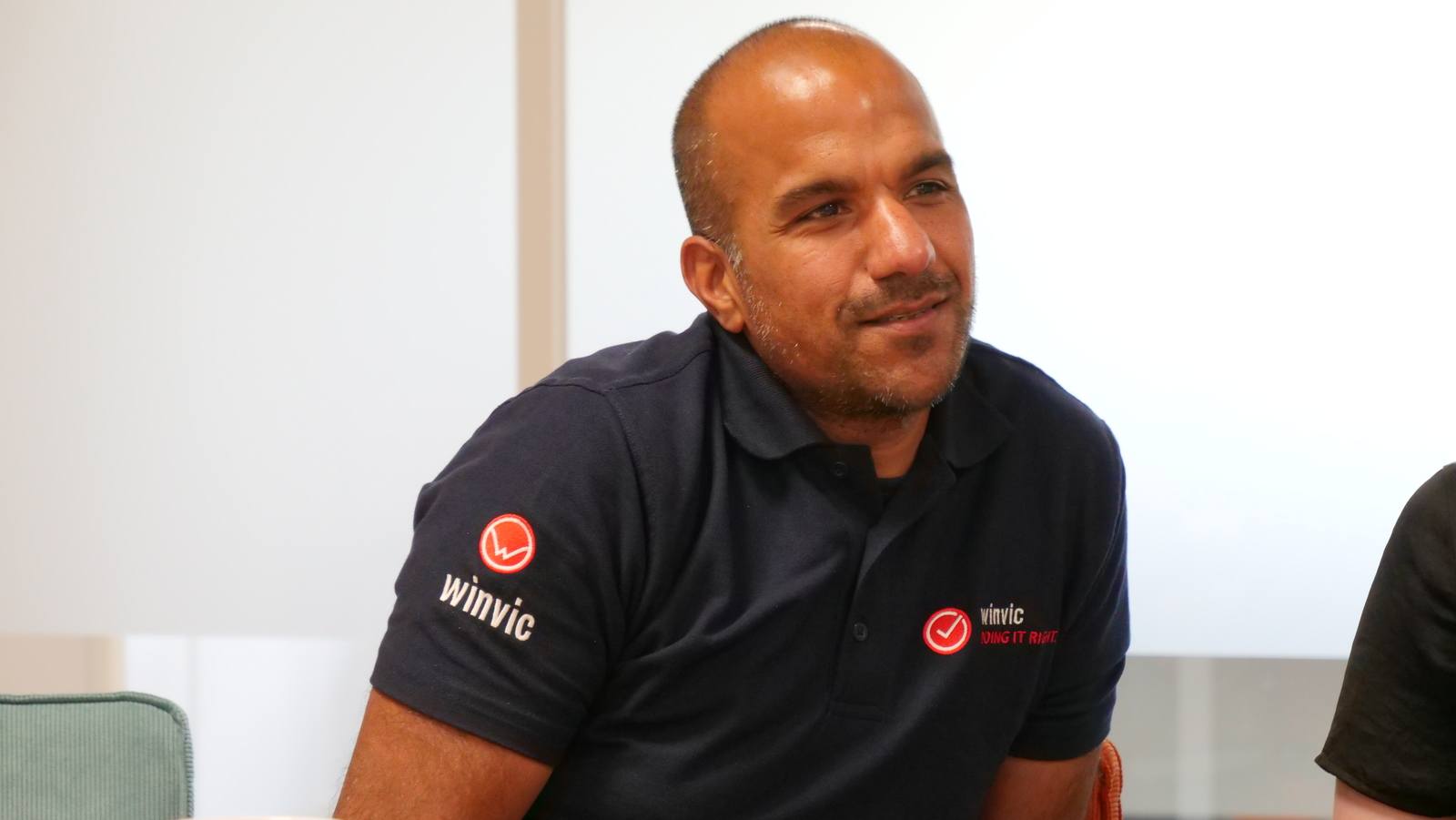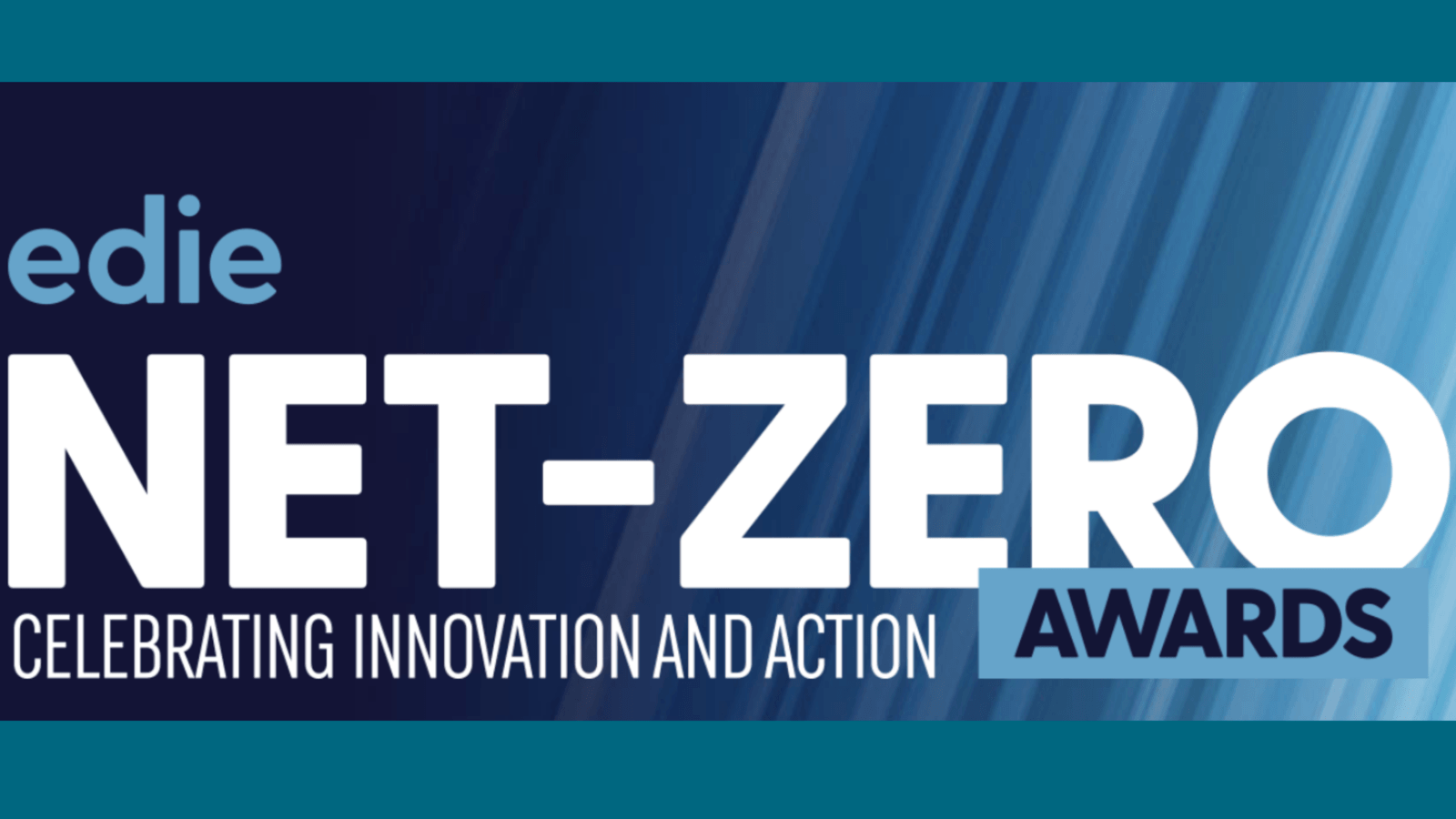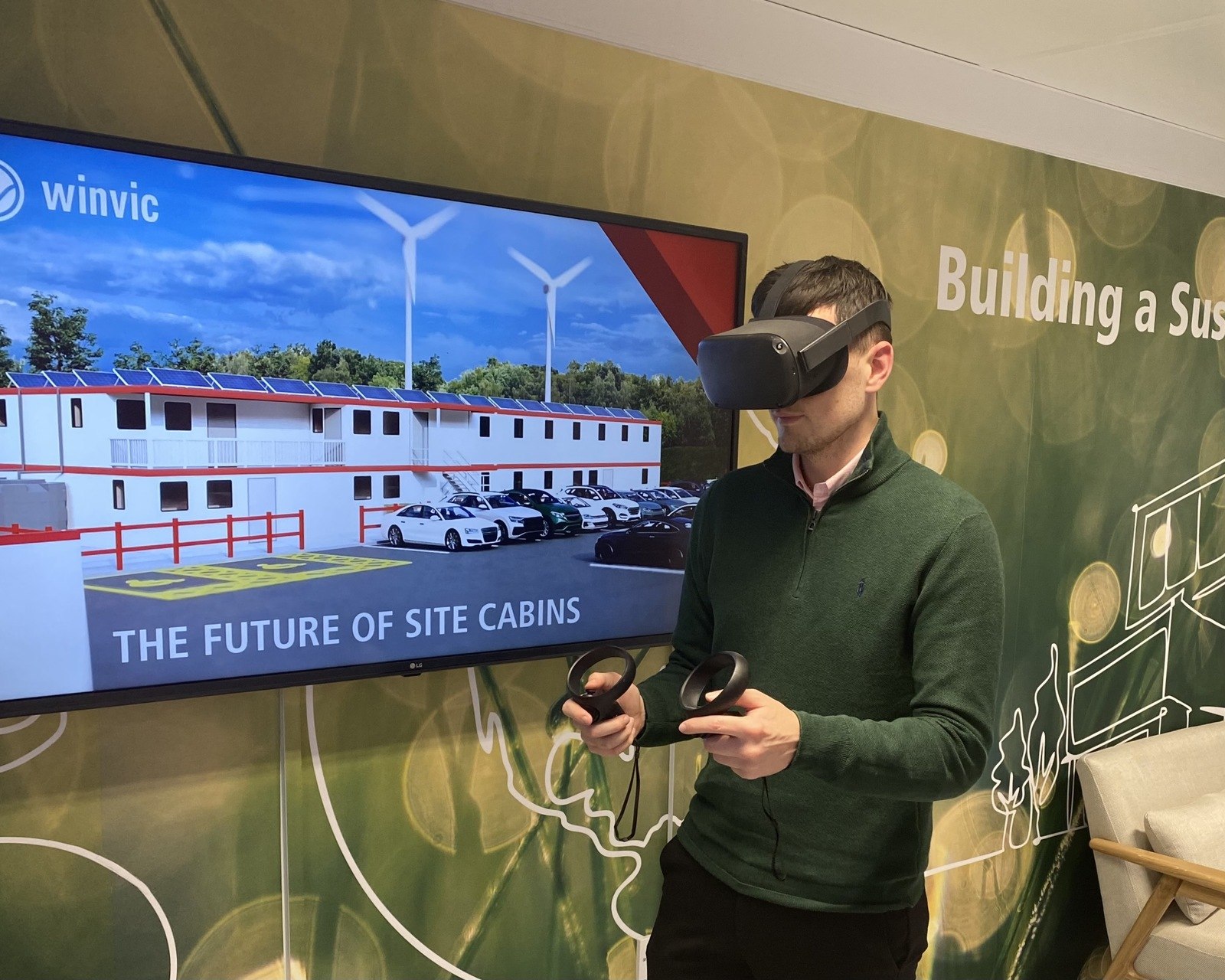Today is the start of Green Careers Week, which aims to promote careers that help to restore and protect our planet, so we naturally wanted to showcase some of the roles here at Winvic. We asked three members of our Sustainability Team to tell us about their career journeys, explain some of the tasks they do day to day and share any advice that they have for others who are aiming for a similar career.
First up is Blythe who became a member of the Winvic team in May of this year, filling the brand-new position of a BREEAM Manager. We previously contracted BREEAM consultants to undertake the advisory, analysis and evidencing tasks which result in projects being awarded a BREEAM (Building Research Establishment Environmental Assessment Method) sustainability accreditation, but now Blythe is doing this role in-house. Blythe was actually one of the consultants that we’ve worked with for many years, so while she hasn’t been with us very long, we know her work very well and she says: “joining Winvic was an easy decision to make as I already felt part of the team.”
While I’m not a careers expert, I have been working with BREEAM for a long time, and I would advise anyone looking to start a career in this area to start with science A-levels and an undergraduate degree. Alternatively, there are apprenticeships at all levels and in many disciplines that would open up pathways to all manner of STEM (Science, Technology, Engineering and Mathematics) related careers. In 2007, I obtained my Master’s degree in Managing the Environment and there was minimal emphasis on areas like circular economy analyses and impact and lifecycle assessments. This has changed a lot and is increasingly important in what we do, so gaining a broad knowledge foundation and research skills is really important. Writing in a scientific manner to evidence something is also very important to learn, for example, explaining that a certain criterion has been met and that the proof can be found in a specific part of another document. This kind of role I’d say is suited to someone who is detail oriented process-led and loves science – it was always my favourite subject. There is some creativity required though when finding solutions to challenges, such as recommending a green roof with certain species to improve biodiversity and being able to clearly communicate in meetings is essential.
I assess and provide the evidence for the BREEAM credits that a project can and has achieved, and I advise and provide solutions along the way. It’s always advisable to bring a BREEAM expert into the team as early on as possible, particularly considering that planning approval can specify the BREEAM rating. The credits can be complex and there are numerous penalties that should be considered in the initial stages of a scheme as they can impact whether a particular rating can be attained. I look at the credits available, assess what’s viable, evaluate what design changes can be made to meet credit criteria and importantly I also take into consideration what’s beneficial for the end user.
Close liaison with our design managers, clients, architects, and subcontract partners is also part of my day to day role at Winvic; with improvements in technology we can now hold some meetings online rather than having to visit site every time – less vehicle movement means less carbon. I’m responsible for gathering all the documentation to pass on to the Building Research Establishment (BRE) for them to undertake an audit of our submission before awarding the internationally recognised certification to the scheme. I particularly enjoy visiting projects when they have reached practical completion, it’s really rewarding to see a feature that I had meetings about two years ago and can say ‘I helped to do that’.
As I carefully track each credit area and the supporting evidence, my role is also a project management job and currently, I’m managing 15 projects. I’ve worked mainly on industrial facilities and that’s how I was introduced to Winvic – which I’ll get to in a moment – so that’s my specialist sector, which I really love. However, I’m now managing my first BREEAM infrastructure project too; at the 734-acre West Midlands Interchange we’re constructing a Strategic Rail Freight Interchange and preparing the site for 8 million sq ft of industrial space. The credit scoring system is different for an infrastructure scheme and the thresholds are also higher; to achieve an Excellent rating for an industrial project, you need to score 70 per cent, but for an infrastructure project it’s 75 per cent. Demonstrating higher levels of economic, social and community benefits and things like future resilience are also required – I’m excited I can apply my 16 years of experience of working with BREEAM standards but also continue to learn new things and continue my professional development.
My Master’s degree covered a wide range of modules that were designed to help you gain employment rather than further academic studies, including one called sustainable development. I applied for roles in the construction industry as well as others that focused on environmental monitoring and my first job offer was from the BRE. My responsibilities included accrediting assessments that arrived, providing training for assessors and undertaking research when schemes and credits needed to be updated. It was all very interesting but after three years I was ready to put what I’d learned into practice, and I applied to become a BREEAM assessor. I then spent 10 years at a consultants’ practice, and this is where Winvic comes into my story. I was appointed to work with Winvic on many of their industrial projects, for example DC4 at DIRFT III and Prologis Park Wellingborough. I got to know quite a few of the design managers, including Arun Thaneja who is now Winvic’s Sustainability and Technical Director as well as my boss!
Joining Winvic was an easy decision to make as I already felt part of the team and I’d always liked how they operated. BREEAM isn’t always the highest priority to contractors, particularly when compared to building control, but Winvic’s way of working conscientiously has always ensured it’s not one of those priorities that gets left behind. The company has delivered 15 Outstanding, 76 Excellent and 127 Very Good rated projects, which illustrates their commitment. Our one team, one goal approach is the key to success at Winvic and being a team player is a great attribute for anyone to develop, whether they’re looking for a green career, a construction career or any other.
Hear more insights from our people on our blog or join Winvic on social media – visit Twitter @WinvicLtd – and LinkedIn.


 Share
Share
 Repost
Repost
 LinkedIn
LinkedIn
 Email
Email



